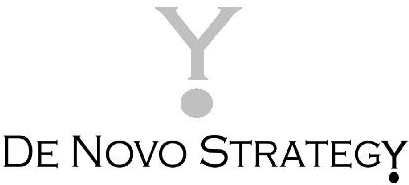With the continuing debate over the health of the U.S. financial system, Wall Street and the economy, everyone's talking about whether taxpayers should be responsible for the bailout. But perhaps the conversation would be more productive if we talked about what else we can do to avoid the bailout and shut down the power-grab that's currently playing out. And, yes I say power-grab because anytime the government gets involved , it takes power away from the people. Period. If our lawmakers give Wall Street the $700 billion, they are taking away the public's power to spend money as we wish-because we have to pay higher taxes to cover those bailout costs. The people who receive the $700 billion will have to untie the knots in the strings attached, just to get to the money. That reduces their freedom to make decisions in this new, less-than-free market.
For those reasons, we should be looking at other alternatives. Here are two things that must be done to alleviate the current situation:
1. Change how banks account for the assets on their books
2. Repeal Sarbanes Oxley (SarBox)
Booked Assets
Several years ago, politicians determined that banks assets should be marked to the market. This means that the value shown on the books has to be the current market value, or the amount the asset can be sold for at that time. This doesn't work, simply because the underlying value of the asset may not change as fast as the market. For example, say a bank spends $10 million to purchase a mortgage-backed security or MBS (a bond), which holds the mortgages of fifty $200,000 loans at 5 percent. The fifty houses tied to those mortgages have value and that value moves up and down over time. But those value changes won't happen as quickly as the interest rate changes on Wall Street. After all, once the mortgages are turned into a bond, they are traded as other bonds; thus, the value is largely based on market interest rates. Of course, an MBS investor has the added concern of relying on fifty homeowners to make their payments, while a corporate or government bondholder only relies on one entity, the issuer, to make those debt payments. But this is part of the added risk MBS represent-that one or more people will miss a payment, or that a property falls into default and is foreclosed.
Because these MBS assets are market-traded, their value is constantly changing. And since the assets must be marked to market, their value on the bank's balance sheet should experience the same constant changes. This works out alright, as long as the movements are small. In the current environment, however, the downward pressure has driven the market value of the MBS so low that no one is buying or selling them. The market has essentially stalled. And that means the value of the MBS is close to nothing! Now, the fifty mortgaged homes underlying the MBS still have value, and perhaps all fifty homeowners are still making their mortgage payments as promised. So is the MBS actually worth nothing? No! But accounting rules require that banks reduce the value of these assets to something close to zero, because that is what the market will pay.
A better option would be to use a three-year rolling average of the value. Doing that would imply a far higher value currently, but it would be a value that is more reflective of the underlying assets (those fifty houses). Even though the homes' values may have fallen 10 or 20 percent, the MBS is still worth something, as long as those homeowners are making their payments. Even in a foreclosure situation, there is still value in the house. The rolling average allows for a smoother change in asset values (up or down) and provides time for banks to work out problem assets.
In an up-market, the rolling average allows for a slower climb up, which limits growth. This would provide a little distance and help keep values in perspective. Under this system, we most likely would not have seen the crazy growth in asset values that we saw in the past several years. Some people figure this could put $500 billion back on the books of banks!
The Repeal of SarBox
Sarbanes Oxley has failed in its purpose. It was passed in reaction to faulty auditing in a few big public companies that failed. This was supposed to help the public see into what is really going on in a company by making the financial statements more transparent. Obviously, this did not work. Fannie Mae and Freddie Mac, AIG and Lehman Brothers were all public companies and they failed, catching many investors off guard.
SarBox has succeeded in making the process of becoming a public company so onerous and expensive that companies are looking to other methods for capital rather than going public. This creates several relevant consequences for consumers and investors:
1. The number of available companies to invest in is reduced.
2. The value of current public companies is inflated.
3. The ability to bring good ideas to the market place is limited.
4. The number of people who want to be involved in public companies is reduced.
The extra regulatory expense of compliance is ranges from $100,000 to $3,000,000 or more annually, per public company. To pay this expense, the companies raise the prices they charge for their goods and services, which places the cost burden on consumers. Higher prices reduce sales and profitability of the companies. It's simple economics.
Monthly, millions of people invest millions of dollars in the equity market through their retirement plans. If there are no new businesses to invest in, the stock prices of the current businesses rise. Retirement savers are bidding prices up so they can own something, anything in the equity market. For example, say the stock market in 2004 consisted of 5,000 companies, and $100 million of new money poured in every year from retirement plans and investors. If 250 new companies were brought to the public market each year, the stock market today would have 6,000 companies absorbing investments of $400 million. In reality, that has not happened. So if the market stays at 5,000 and the same additional $100 million is invested annually, then the stock prices of those 5,000 companies would go up-simply because more money is being poured into the market. Has there been a change in the true value of these companies? No, the price was simply bid up because there was more money to buy. Many companies are not going public because of the SarBox hassle factor so there are fewer IPO's hitting the street.
The expense of SarBox also prohibits companies from coming to the market with their good ideas. Many people and their companies have chosen to find other methods of financing to avoid dealing with the added regulation of SarBox. One executive told me that it was just "too much of an expense and headache," because the company "would have to hire a compliance person at $60,000-$100,000 per year along with the added auditing expense of another $100,000 per year and the additional filing expenses another $20,000 or so." And, in the end, this executive didn't figure the expense was worth the problems. SarBox requires the board and management to take personal liability for all the problems of the company. People don't want to do that! Responsibility is critical in any business venture, but no CEO or board member knows every detail of what is going on in any company. And yet, these executives are personally liable for all activities of the company. Many people do not need the increased liability; this is akin to driving without insurance. This again keeps good companies from coming to the marketplace.
Modifying the mark-to-market requirement and repealing SarBox would bring billions back to the books of banks and strengthen their balance sheets. The result would be fewer bank failures, more companies in the marketplace, more choices for investors and, probably, lower prices. These are not the only solutions, but they are a major step in the right direction.


